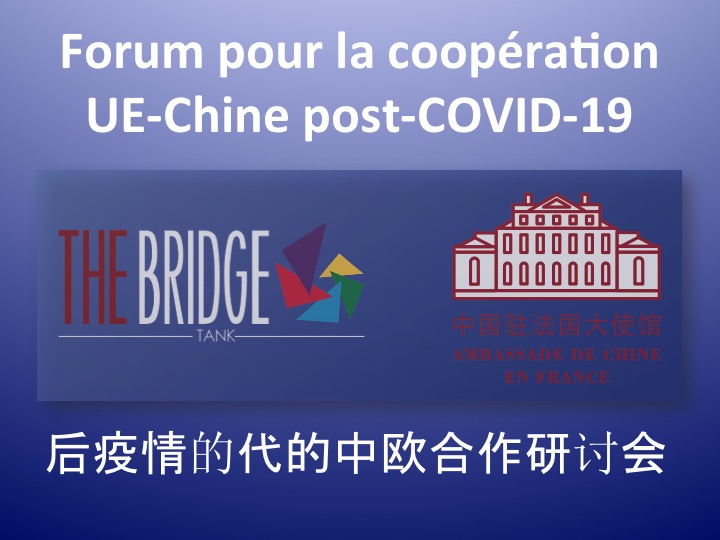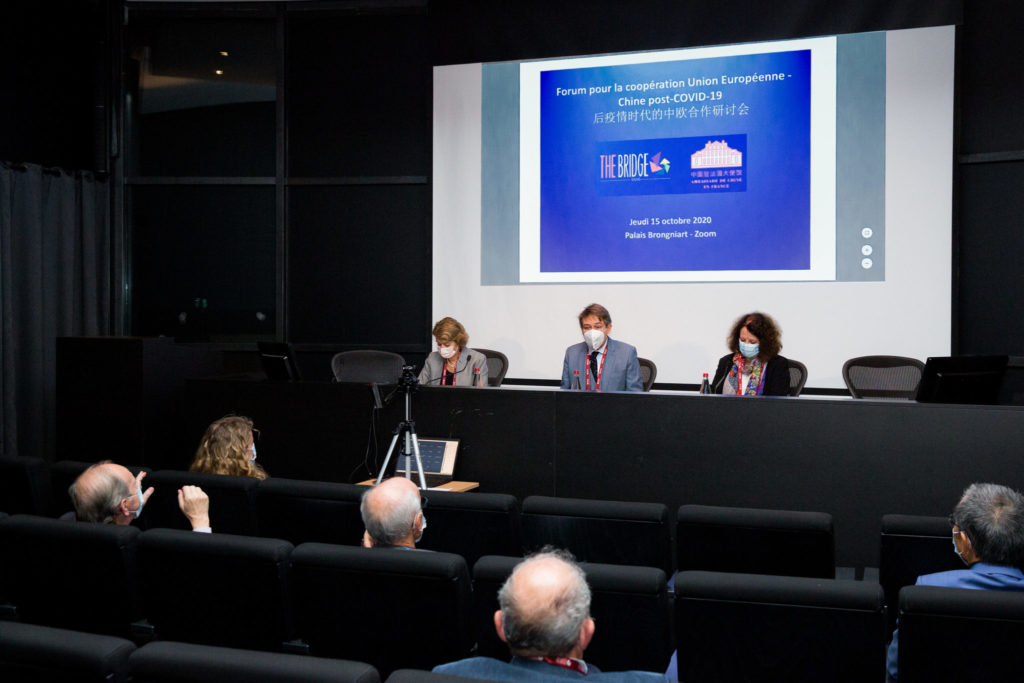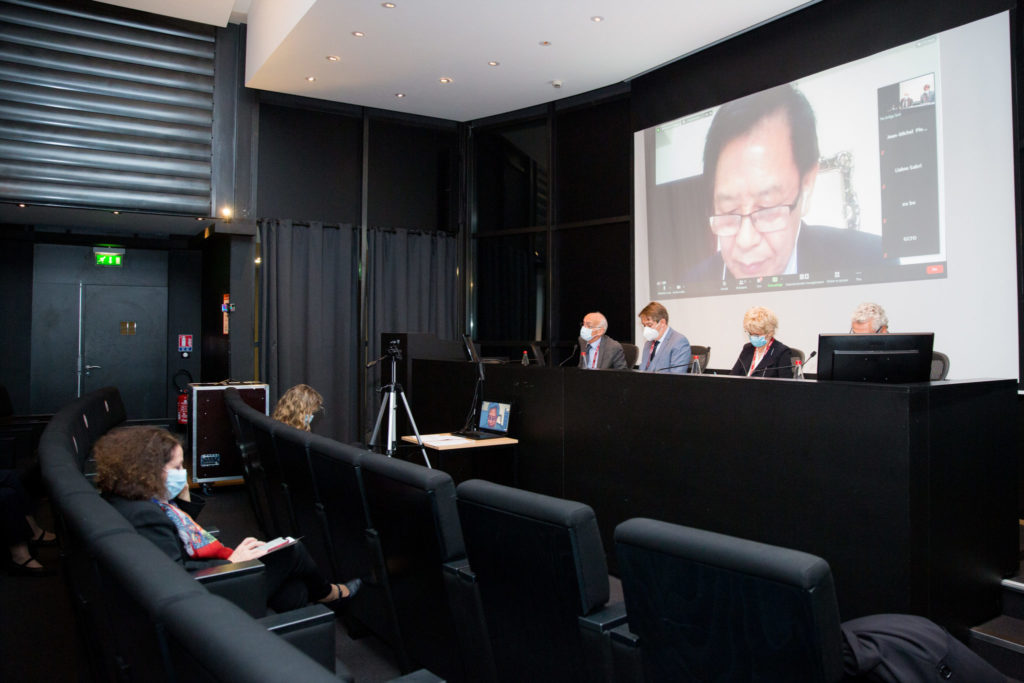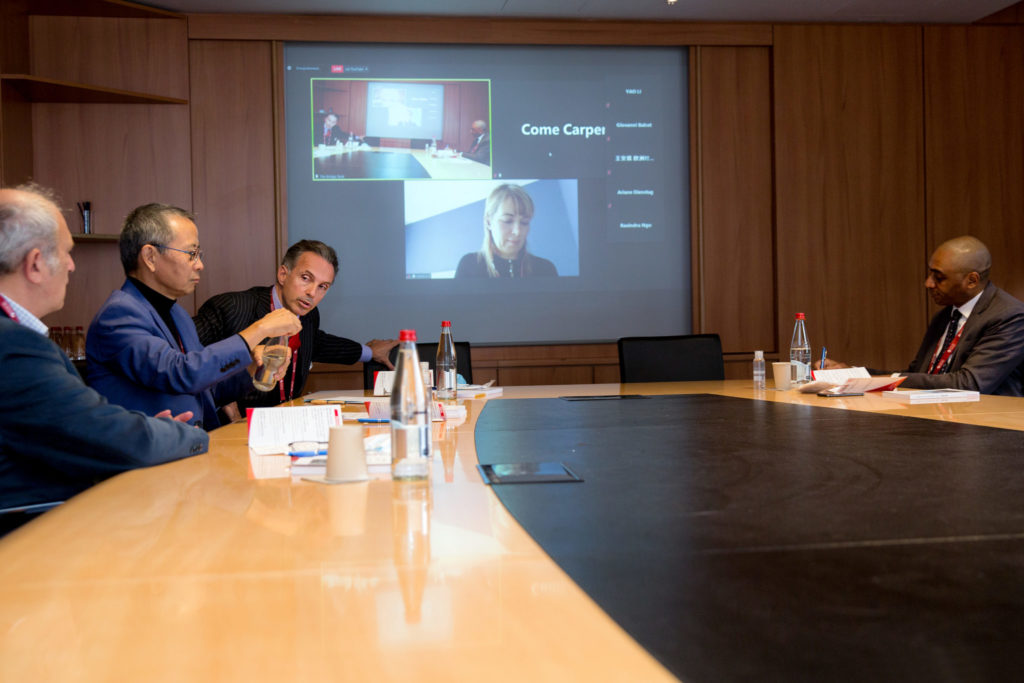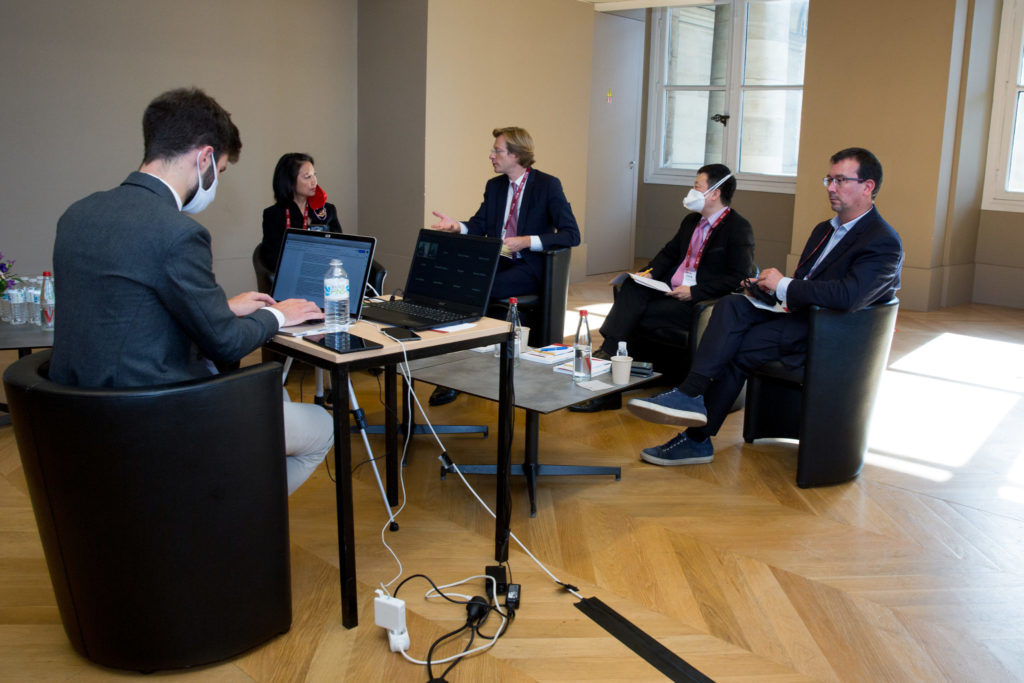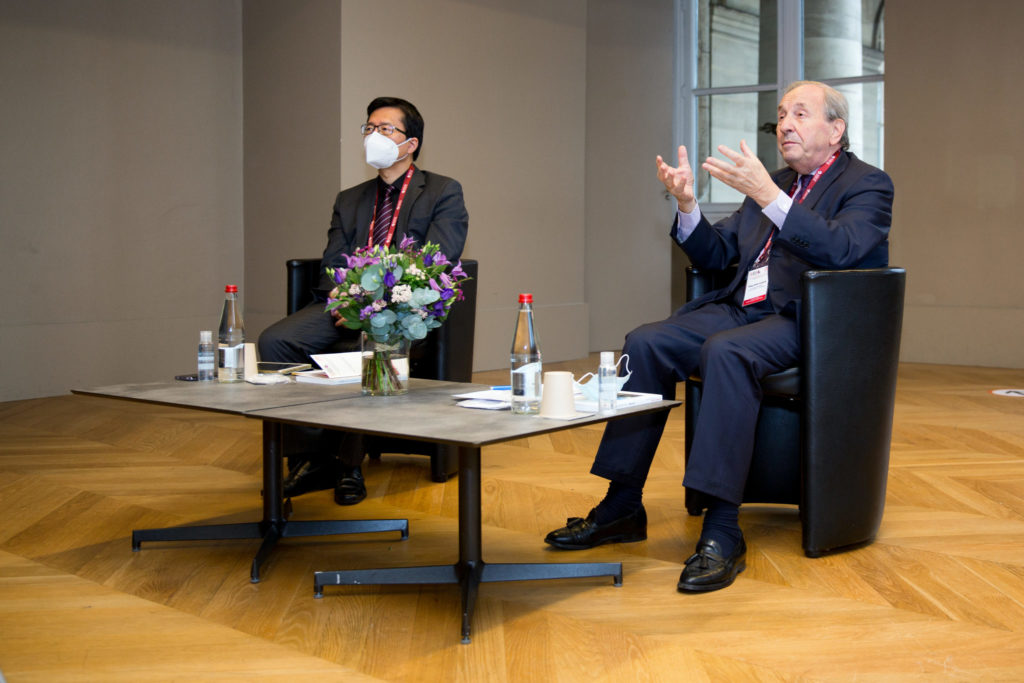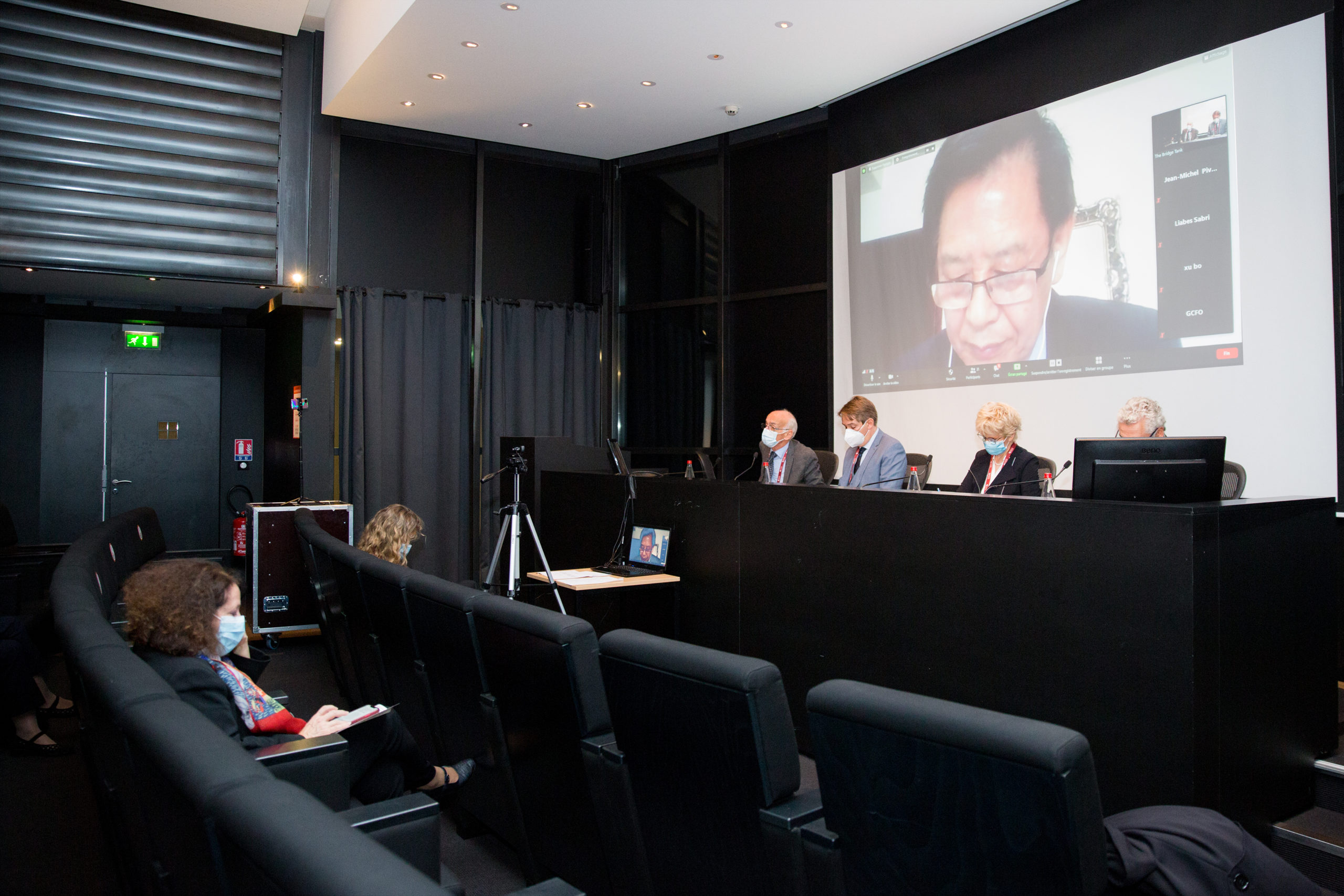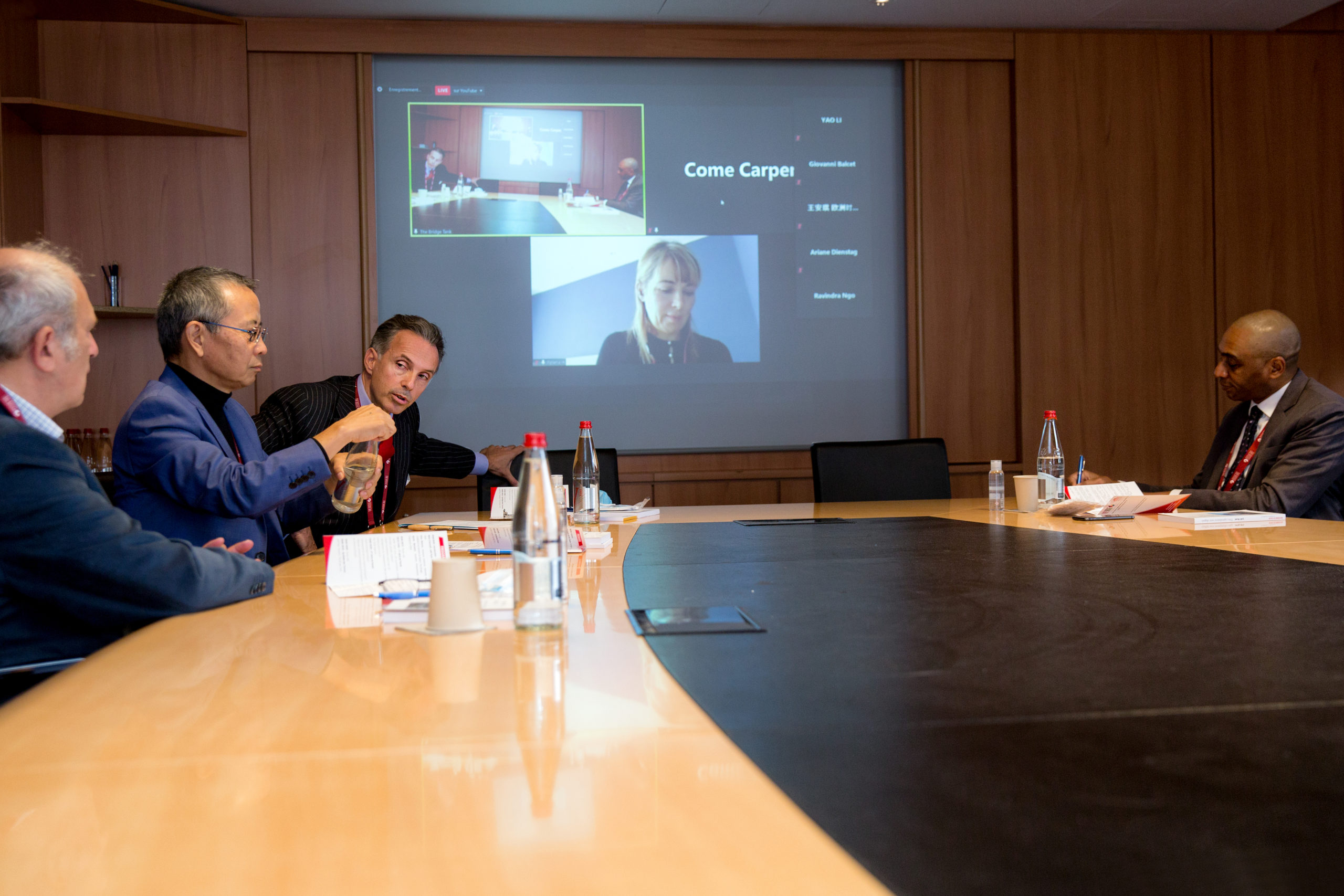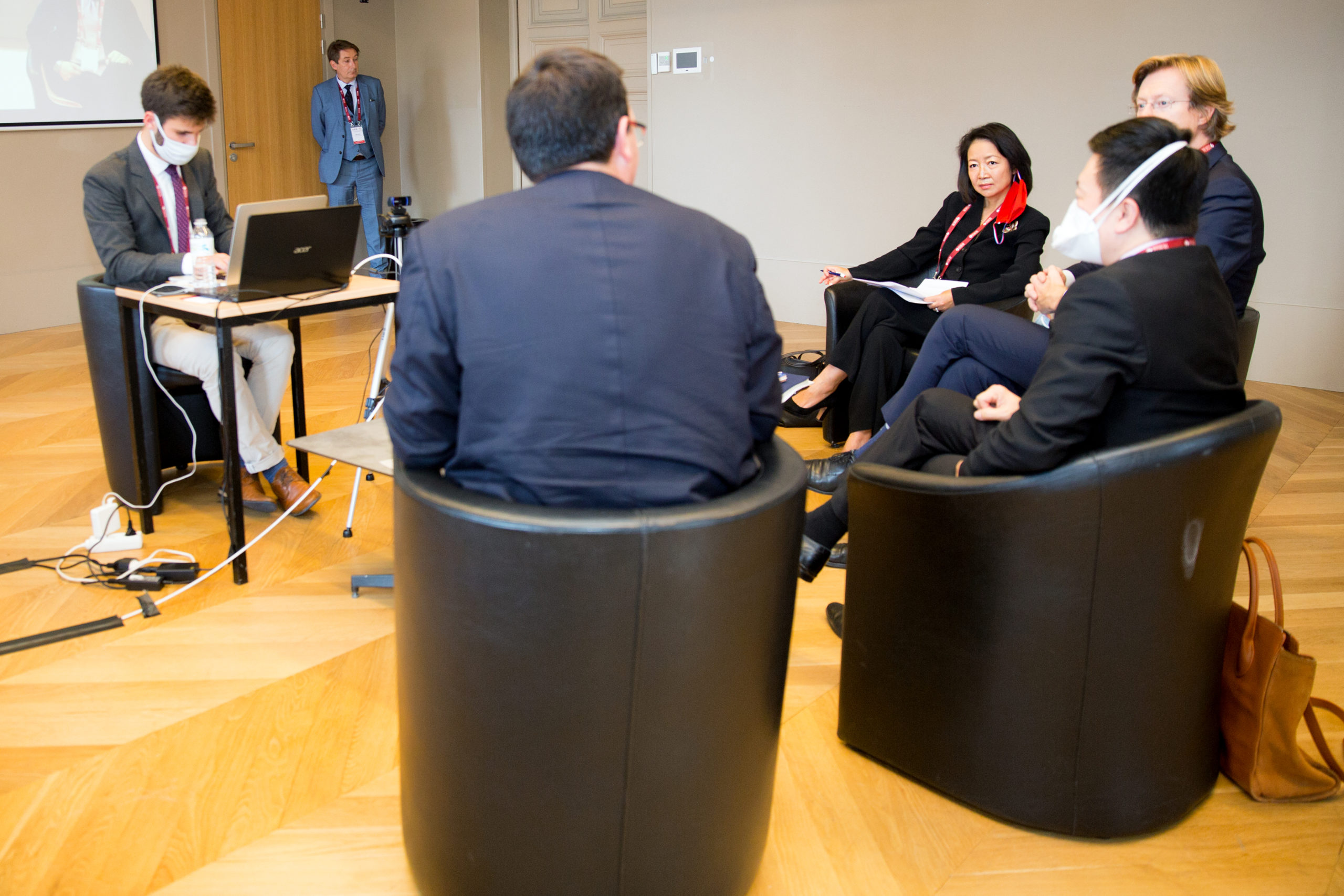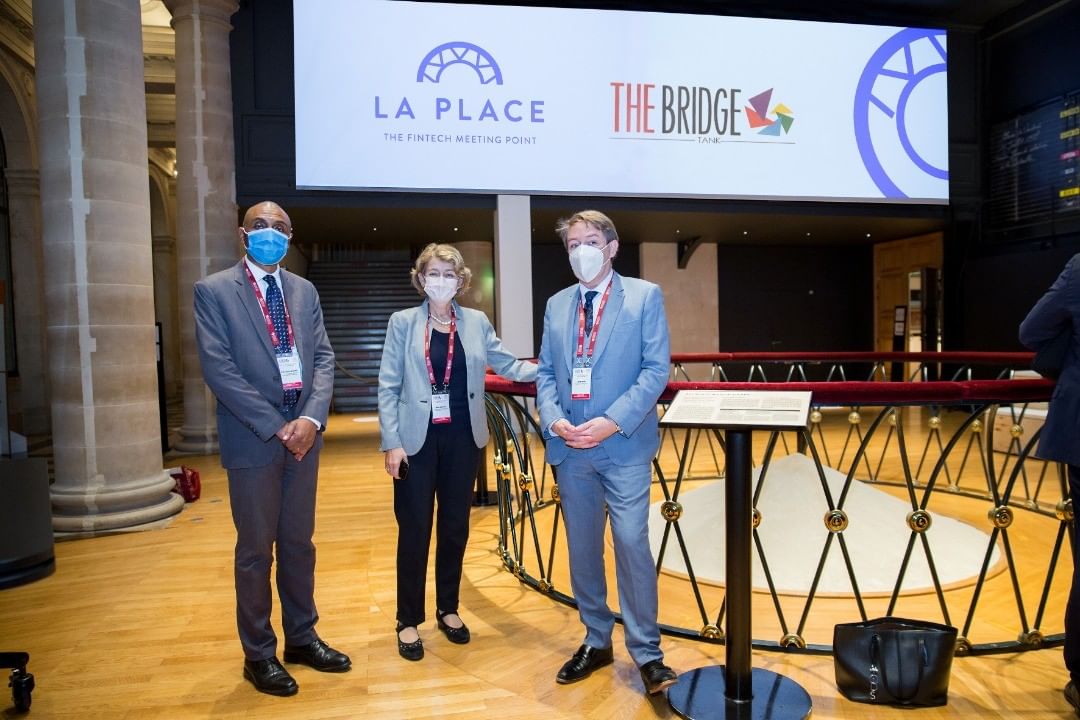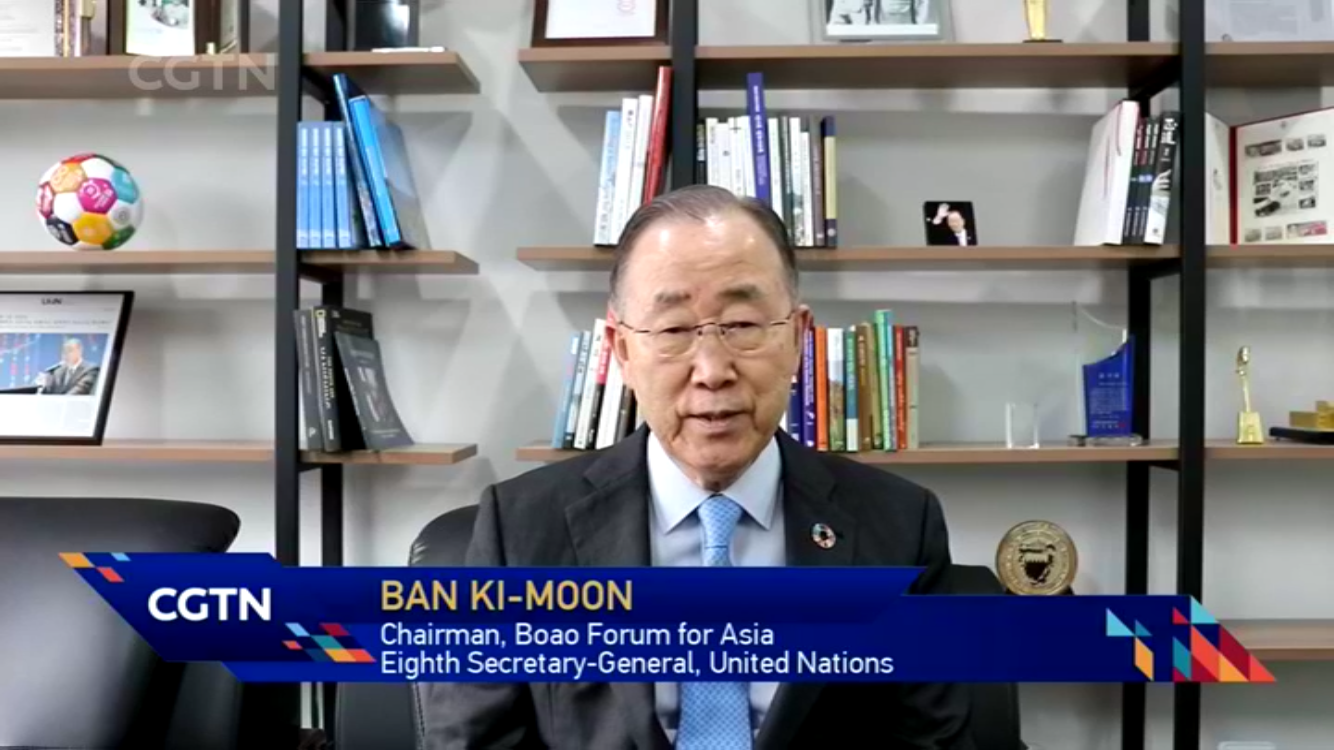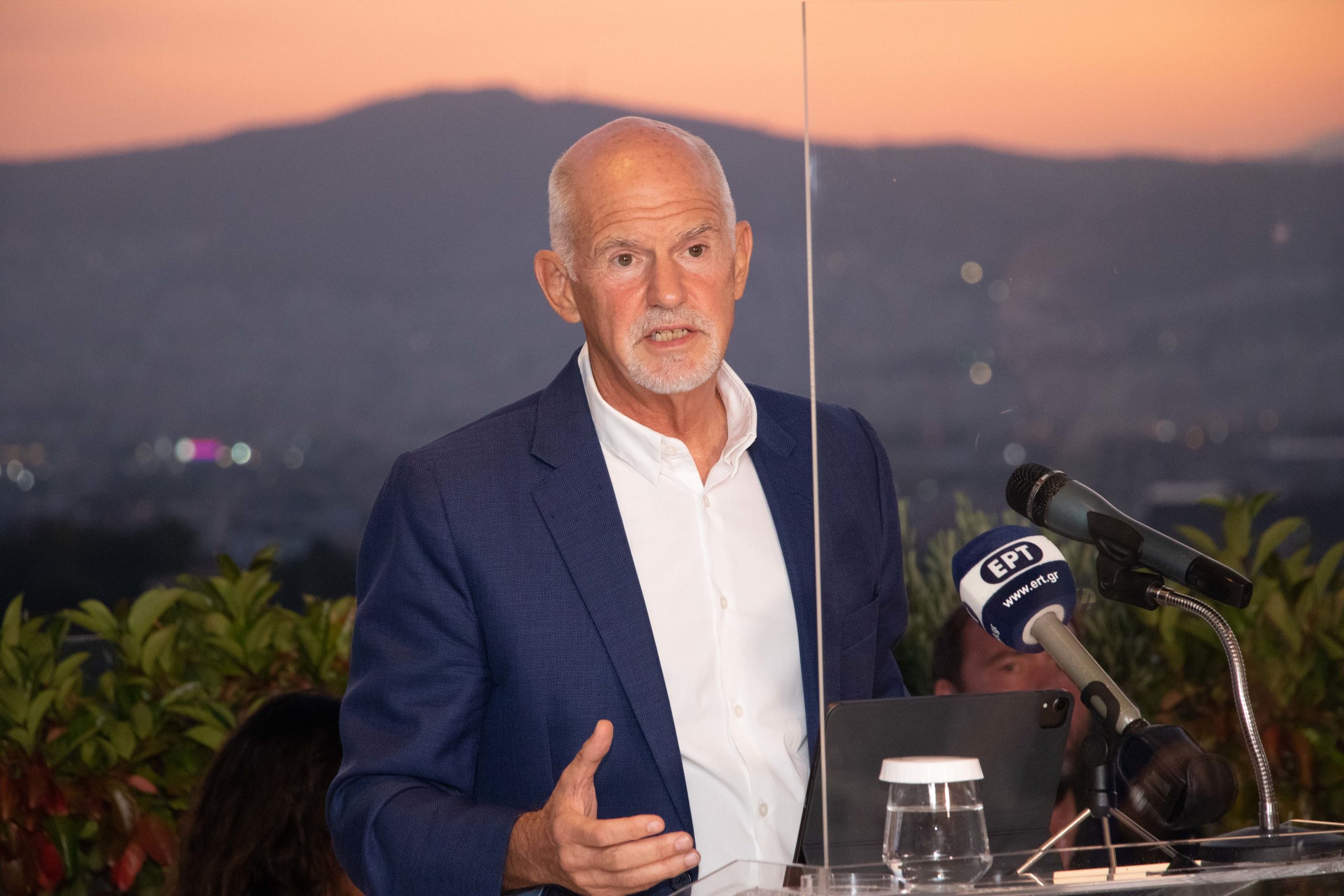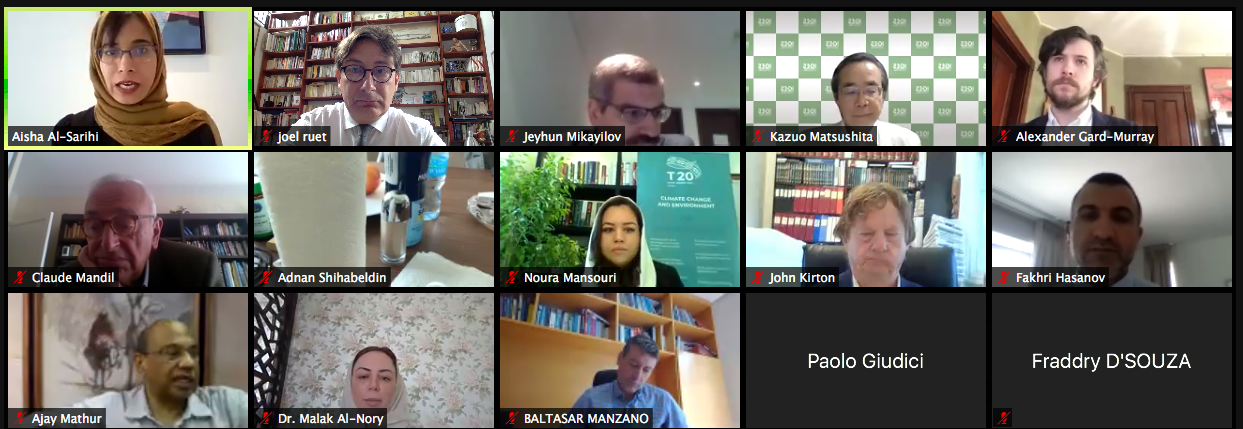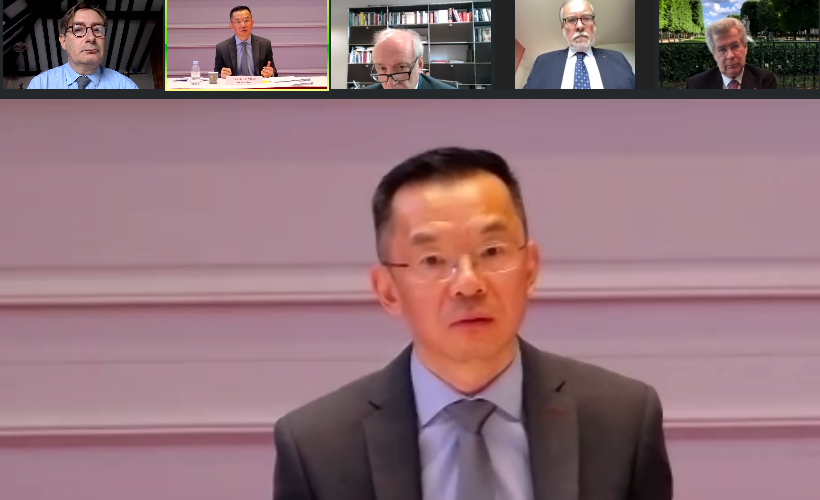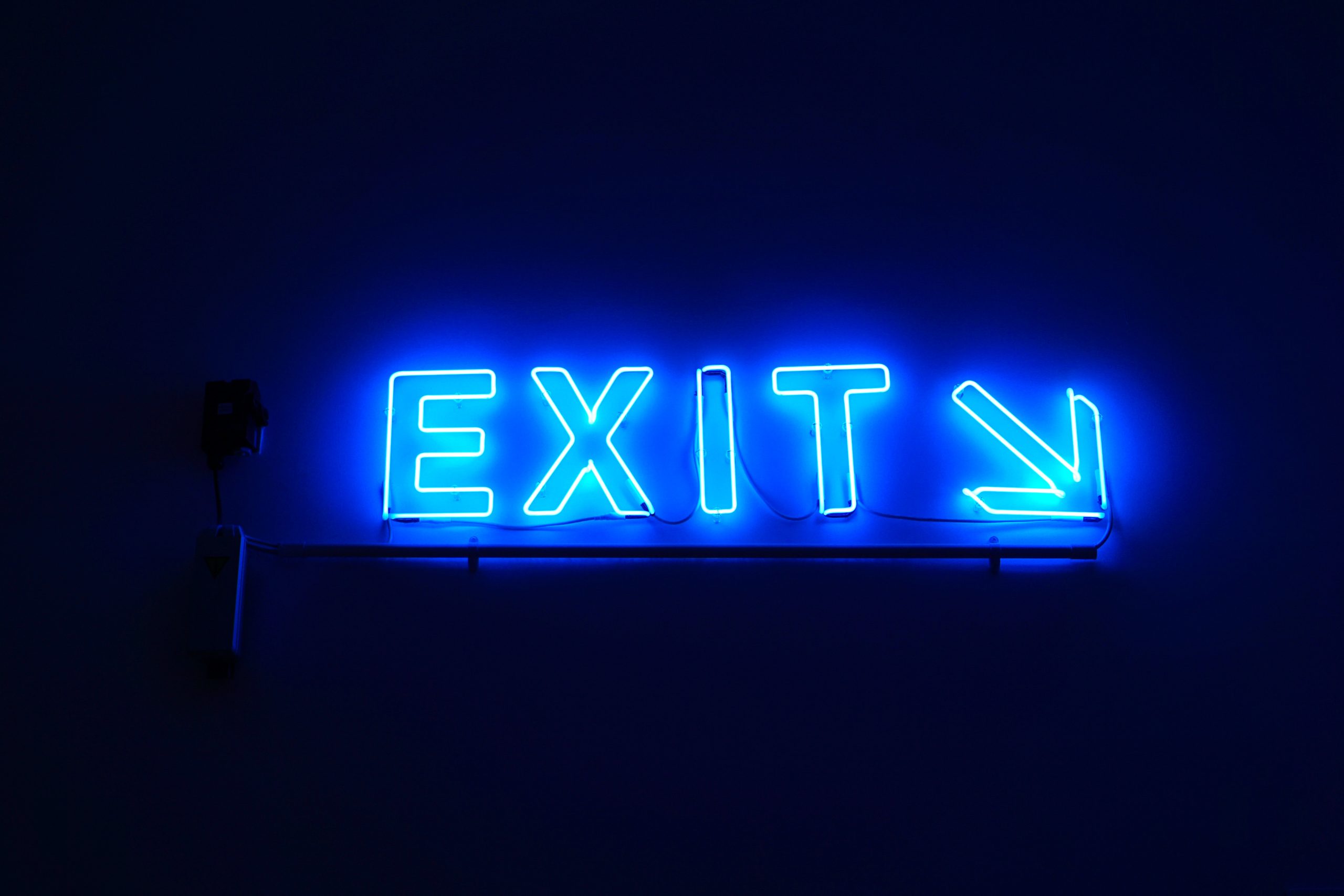What vision for an innovative, plural and inclusive global governance?
Ambassadors Stéphane Gompertz, Geneviève des Rivières, Sun Haichao, as well as IPSE President Emmanuel Dupuy, discussed with Joël Ruet the role of China and the EU on several global public goods and areas of global governance to work on together, including security and climate, covering also the comparative foreign economic action of these entities in Latin America and Africa, exploring ways and means of cooperation in third countries, notably in Africa.
Some recommendations emerged:
China could play a greater role in the field of political relations, to deal with internal and external conflicts as in the Central African Republic.
At present, China is an observer in the Paris Club: if it were to join, what would be the benefit in terms of common public goods?
China and the EU could cooperate on inclusive governance for the South by supporting the diversification of countries’ economies; the implementation of strategies to transform and diversify exports, adding value, promoting regional trade, entrepreneurship and support for SMEs, and reducing the informal economy.
On several subjects, it seems possible to create partnerships between the EU and China: in the field of international relations, demilitarisation, denuclearisation or on common goods such as biodiversity.
Finally, proposals for the governance of multilateralism were put forward:
China has long adopted a bilateral approach, dealing with international relations on a country-by-country basis rather than via a global approach. It now seems necessary to bring together multilateral working groups, including economic organisations, to deal with these issues and to identify the possibilities for joint work in a well-understood multilateralism, which must also involve poly-governance. Indeed, States cannot be the only decision-makers and thinkers: the various non-state actors have a role to play
Download the summary of the debates (in French) here
Download the verbatim report (in French) here
What globalisation after Covid-19?
To outline a new vision for Europe and, consequently, the challenges of its relationship with China, François Loos, former French Minister of Industry and Foreign Trade, Fatima Hadj, Member of the Bill and Melinda Gates Foundation’s Sustainable Development Goals “Goalkeeper” Community, Alex Wang, Honorary President of the Association Transition Ecologique et Solidaire Française et Chinoise (TESFEC) and Henri de Grossouvre Honorary President of Paris Berlin Moscow met under the leadership of Jean-Claude Beaujour, member of the Board of the Bridge Tank and Vice President of France-Amériques.
Jean-Claude Beaujour noted that the EU has an opportunity to rebalance its global relations, but asks if its governments are ready. Relocation meets a complex reality: what is the business vision of Euro-chinese relations and suggests that it is time to explain to citizens that those on the ground think differently and what the real options are.
François Loos insisted on the necessary restructuring of Europe-China relations, which are too much hampered by bilateral and non-EU relations. Europe must assert itself as a community, and review the mode of governance (going beyond majority voting). For example, photovoltaic production in Europe is compromised by Chinese imports. European producer countries should be favoured. China will have to put in place concrete incentives to enforce the laws in force. Its government has passed a law forbidding unequal treatment of Chinese and foreign companies. But this law is very slow to take hold and to be effective.
Henri de Grossouvre notes that the liberal era (1980-2020) is over. Thus the dogma of non-intervention by the state is being challenged in the EU itself. Example: Massive intervention by the US government. Europe must structure its governance.
Alex Wang believes that Europe-China relations will not stop because of Covid and that two subjects are emerging:
The necessity of rethinking the supply chain to make it more resilient and finding local production solutions.
Rethinking exchanges and collaborations in the field of corporate social responsibility.
Fatima Hadj sees the Covid crisis as exceptional because it impacts all socio-economic areas (unlike 2008 which was purely financial). It raises awareness of the need for economic sovereignty, which must be based on two pillars: management of economic dependence/independence; and finding areas of strategic cooperation, for example the electrification of uses.
Download the summary of the discussion (in French) here
Download the verbatim report (in French) here
EU-China: Green development or ecological civilization?
On 14 September, China and European leaders held a summit on an investment agreement. What does the timing of this announcement imply for the climate dialogue? How can we position ourselves in a green dynamism and common ground to give access to these green technologies in all countries? What are the opportunities for companies and industries whose primary goal is to create value?
Wen Cui-Pottier, Guillaume Henry, Zhao Wei and Nicolas Imbert discussed these issues.
The need for law in a perspective of innovation and transition emerged:
Every legal rule can be subject to an ecological analysis. Existing legal rules must be improved by placing them under an ecological prism.
1% of green technology patents are filed in Africa and 3% in Latin America. More than patents, the cause of the technological divide between developed and emerging countries is the know-how that underpins innovation.
Multinationals must be encouraged to collaborate because 70% of patents are filed by large groups that have significant cross-border networks and are the most effective in implementing technologies and knowledge in the countries where they are present.
It also shows that China relies on a competitive and attractive industrial base to develop its green industry. Greening an economy means changing its industry.
China relies on an ambition with three interactive layers: the central government, the active participation of localities, and the investments of Chinese companies.
Chinese companies have an ambitious strategy and are positioned upstream and downstream of the supply chain. They are also present on foreign markets.
China and Europe must enter into a competitive collaboration. Today, Chinese and European companies are actually collaborating while governments are in confrontation.
Finally, two trends complement each other: 1) G. Thunberg’s “How dare?”, which underlines the lack of concrete investment by developed countries in green development, and 2) many effective and agile sectoral initiatives at local level.
Are we in a logic of license to cooperate or of a grey economy to be reinvented? Between green development and ecological civilisation emerges the idea of a possible co-construction with a realistic vision of resilience.
Download the summary of the debates (in French) here
Download the verbatim report (in French) here
Forum on Sino-European Relations and the Impact of the COVID-19 Pandemic
Irina Bokova, former Director General of UNESCO, Joël Ruet and Jean-Claude Beaujour, lawyer and Vice-President of the France-Americas Foundation, were among the keynote speakers of the Bridge Tank’s forum on the Sino-European relations and the impact of the COVID-19 pandemic on them. This event, co-hosted with the Chinese Embassy to France, gathered politicians and experts to discuss about the evolution of globalisation, green investment and finance, human exchanges and green transitions in France, China and the European Union. This forum took place on the 15th of October 2020.
Forum on the UN 2030 Sustainable Development Goals
Ban Ki-moon, former UN Secretary-General, Liu Zhenmin, UN Under-Secretary-General, Justin Yifu Lin, honorary Dean of the National School of Development under Peking University and former Senior Vice-President of the World Bank, Yves Leterme, former Belgian Prime Minister, James Kimonyo, Rwanda Ambassador to China, Jeffrey Sachs, Director of the UN Sustainable Development Solutions Network and professor at Columbia University, Zhang Linxiu, Director of the UN Environment Programme-International Ecosystem Management Partnership, and Sandrine Nduwimana, China-Africa Business Council, were among the keynote speakers of the Forum on the UN 2030 Sustainable Development Goals and China’s Poverty Reduction Experience. This event was co-organised by The Bridge Tank and the CGTN Think Tank. It took place on the 17th and 18th of September 2020 online, and gathered over 140 representatives from 39 countries.
Among the suggestions to reach the poverty eradication goals were the introduction of a temporary basic income for people just below or above the poverty line, deworming programs, as well as investments in children’s health, women’s rights and educational opportunities. Human ethics and management must be at the centre of the building process of a sustainable world without poverty.
This event was broadcasted on CGTN, CCTV News, People’s Daily, Xinhua and Xinwenlianbo.
Around George Papandreou, Madeleine Albright and several Foreign Affairs and Prime Ministers, the 22nd Symi Symposium invented the “Hybrid Forum”
July 26th-30th, the progressive family resumed meeting, to discuss the current global and US situation, the future of Europe, and topics such as the lifelong learning systems, narratives of wars and progressive movements of care, energy renaissance, the Balkans, the BRICS. Striking a balance: both in person, the good old way, and through Zoom, the good new way.
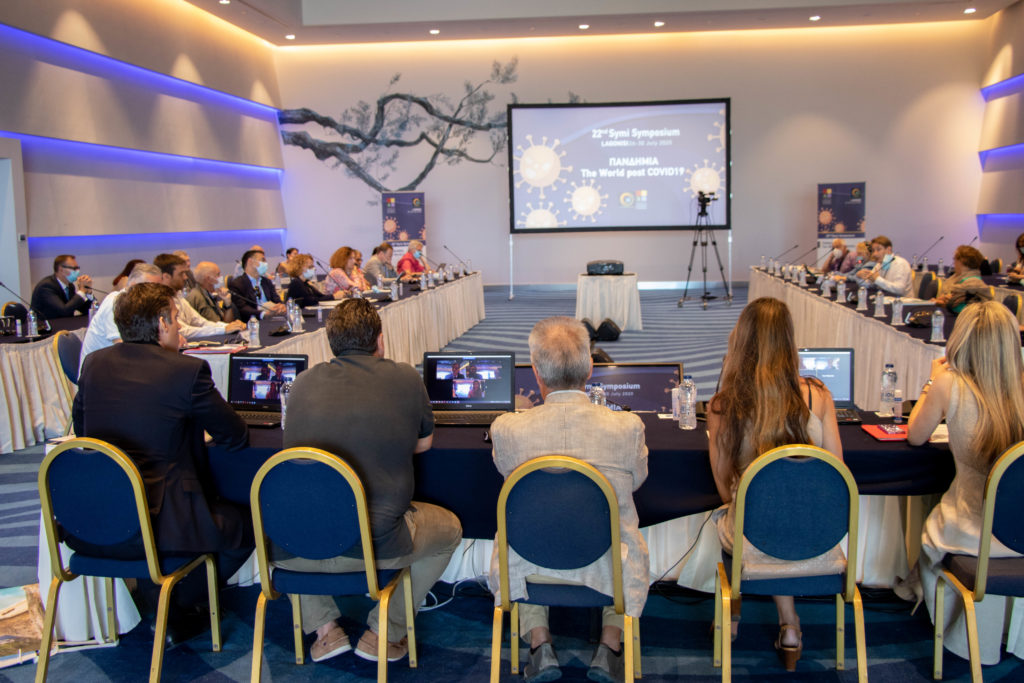
Despite the pandemic and other shut borders odds, the Symi Symposium, annually organized by the Andreas Papandreou Foundation, could this year again gather George Papandreou’s political and academic, influencers, friends. Since 2017, The Bridge Tank is being part of what this year was perhaps the first “Hybrid Forum”: a fine combination of core in-house, closed doors debates with tailored amount of Zoom exchanges with leaders such as f. Secretary Madeleine Albright, NATO’s Dy SG Geona, f. Australia’s Prime Minister Kevin Rudd or Colette Avital former Presidential candidate in Israel.

Symi Symposium conversations take place under the aegis of the “Chatham House” rules; not disclosing the positions of various speakers, topics revolved around pressing issues: with Madeleine Albright and later with Richard Parker from Harvard on the growing understanding that racism in America has something “systemic”, and how generally speaking the US situation relates to the agony of an age when Americans were 80% rooted in American-European white population, now evolving towards a 4-5 streams of populations origins trying to organise a domestic polity; the US now stand at a point where they have to internally negotiate new political alliances: this might possibly be one root of America giving the impression it is now in a mess.

As Greece now chairs the Council of Europe, this edition was additionally a week long opportunity to discuss current issues with
Frank Schwabe, Chairman of the Socialists, Democrats and Greens Group in the Parliamentary Assembly of the Council of Europe, or Francesca Abrogast, Executive Secretary of the Group.
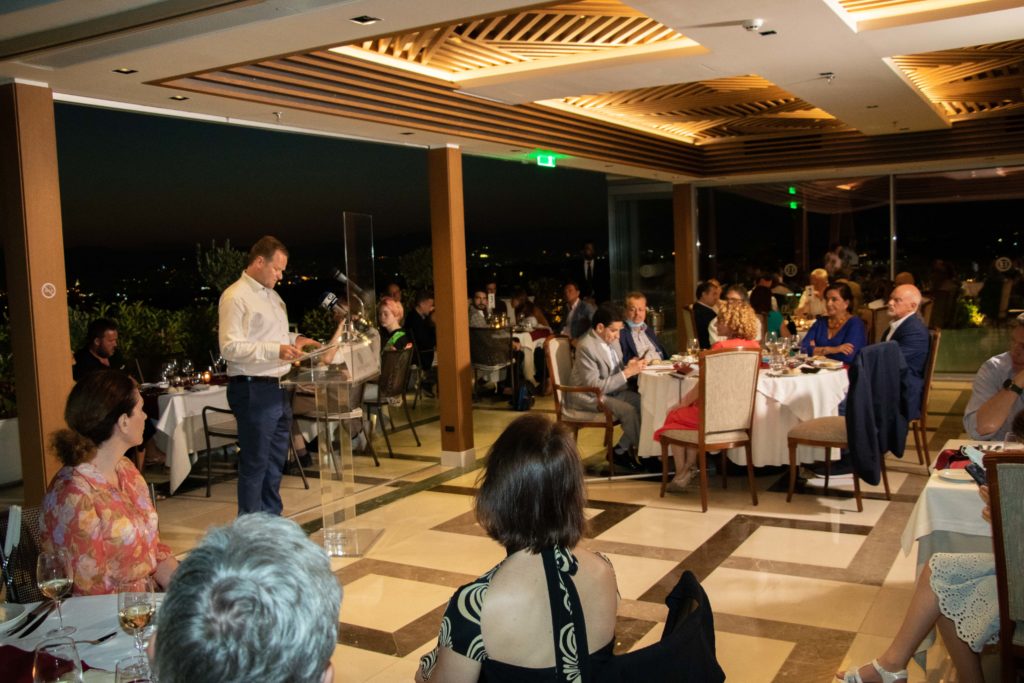
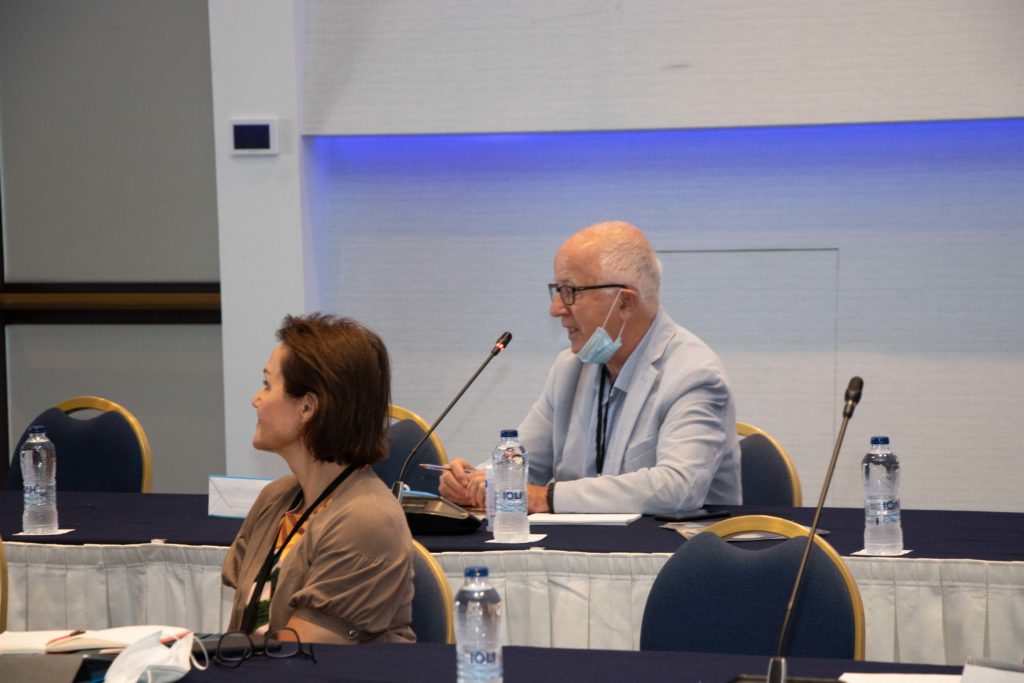
We also had the usual Symi Symposium conversations with leaders in the Balkans or struggling progressives of different parts of the world, such as Isadora Zubillaga from Venezuela, the Special Representative in Paris of Juan Guaido. Conversations with leaders who have just emerged out of democratic struggles (North Macedonia), or who are now into these (Venezuela) attested that “Democracy is the longest meeting”. In this line, Joel Ruet from the Bridge Tank advocated for a continued discussion with the weavers within all systems.
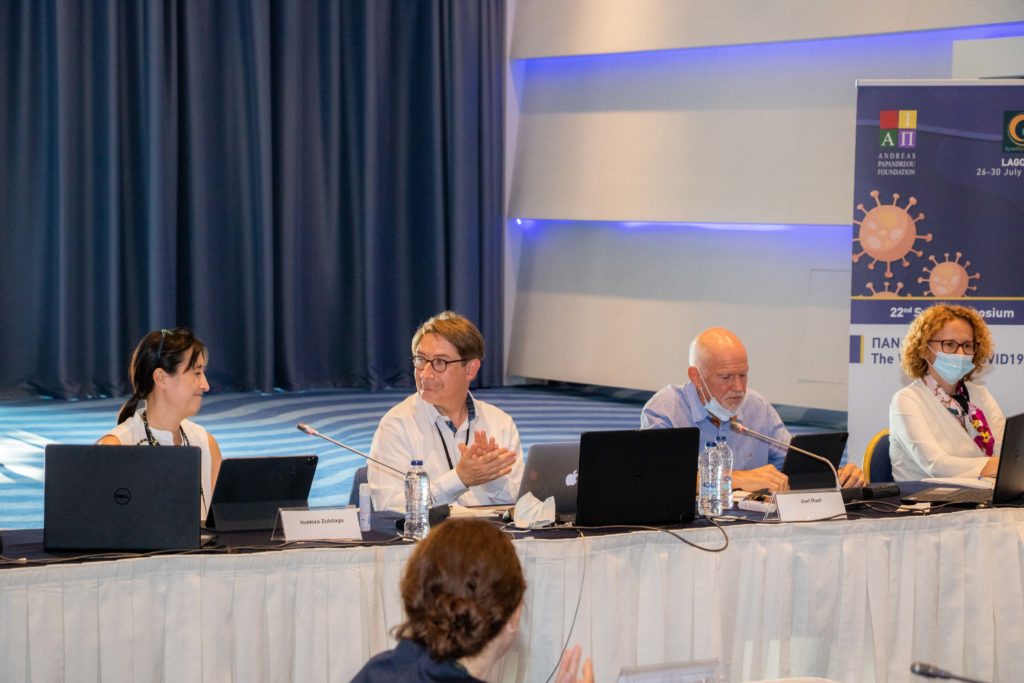
During the same session, a special conversation with Mircea Geoana gave us the sense that NATO’s Secretariat is quite active at foresight on the risks and threats of the future.
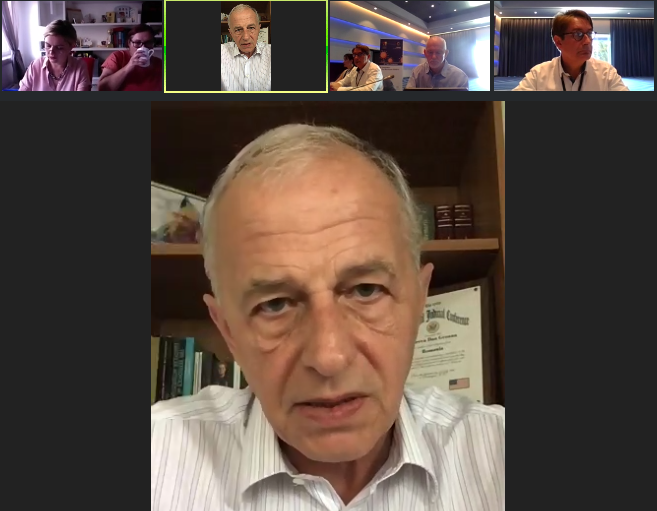
We also discussed the pandemic development through the lens of lifelong learning systems, over three time horizons: so far the reaction against the Covid was a “Defense”, we’ll now need to “Exit” this temporary space and actively prepare to engaging into transformation, e.g. “Enlarging” humanness of systems. On all issues with no boundaries, a care Leadership has to emerge through the right bundle of community, participative democracy, technology, and an Education designed for world and life, not just for jobs. Economics too need to be mobilized: in the eve of automation, how shall robots contribute into revenue, and revenue support a “positive idleness”, that is not a pure ensure but contribution to the society.
It is all the more important to continue this work and not to be blinded by strategic competition, frictions and gaps, but rather recognizing at areas of strategic collaborations: Covid, climate, finance cooperation. The Symposium closed with ground for optimism, noting that in the long course of Energy history, for instance, the world sees the first policy driven energy transformation. It si in a great way also industry-driven and transition has to be Just with a real energy-society integration by policy; this may serves as a case study for a larger renewed Social contract.
Last but not least, Symi was also the occasion to continue exchanging ideas beyond the sessions.
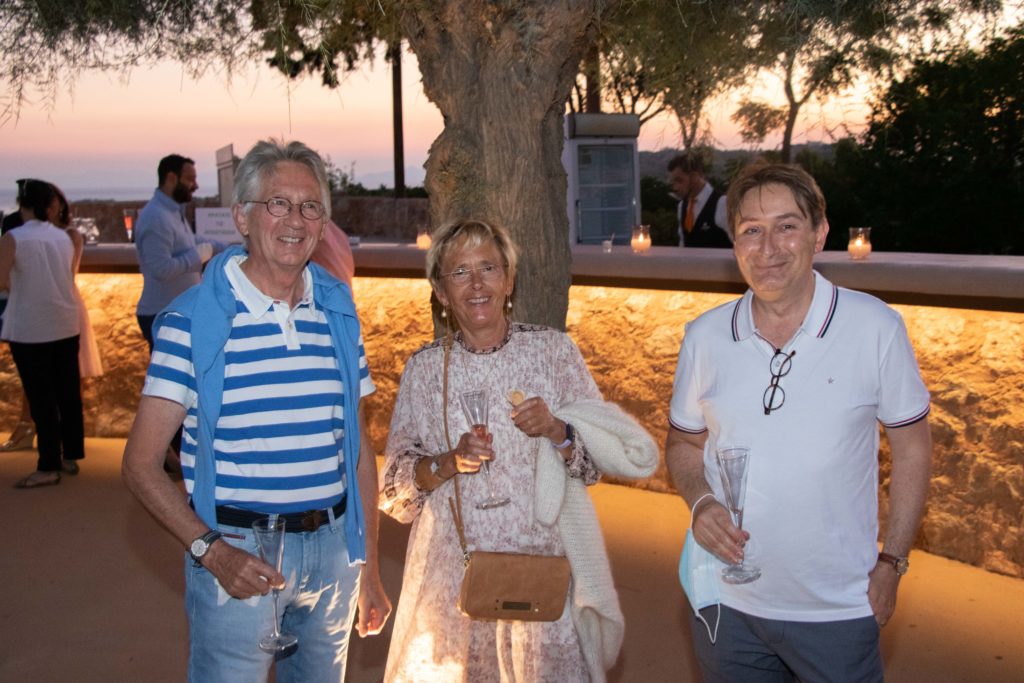
Joel Ruet, Chairman The Bridge Tank
NB: This post is only a personal reflexion on the event and discussions and does not bind in anyway the organizers nor any participant. Quotes are not necessarily attributable to any of the participants, nor to the persons mentioned in this post, but are rather reformulations of some formulas that may have circulated in the forum at some point.
T20 Web Conference: Policy Recommendations for a Post-COVID-19 World
Joel Ruet presented the views of the Bridge Tank-convened working group on Promoting Southern actors’ direct access to the Green Climate Fund to de-risk projects and raise additional climate finance flows, written by Joël Ruet, Alessia Ameghini, Adel Ben Youssef, Ban Le, Celine Bak, Alexandre Borde, Paolo Giudici, Axel Michaelowa, Kang Rongping, Aman Srivastava, Leena Srivastava, Anbumozhi Venkatachalam.
Both the 2020-horizon USD 100 billion mobilization for climate and 2025 renewed target remain elusive. Climate negotiations are heading for a deadlock. The largest among multi-lateral climate funds, the Green Climate Fund, targets “greater paradigm-shifting mitigation and adaptation impact”. Structuring and scaling up climate financing implies to focus on differentiating between various risk appetites.

To encourage private additional flows, the G20 should support the GCF’s strategy of efficiently accrediting more Southern actors, becoming a facilitator of blended North-South-South public-private finance and an “educated risk-taking” Fund. This would defuse the climate negotiations crisis and accompany structuring climate finance.
Exchanges and proposals on industry with the Chinese Embassy in Paris
On June 11th, Joel Ruet exchanged views on the international situation with the Chinese ambassador in Paris and French personalities including former ministers Hubert Védrine and François Loos, former Elysée diplomatic advisers Maurice Gourdault-Montagne and Jean-David Levitte, experts Emmanuel Dupuy, Barthelemy Courmont and General Jean-Bernard Pinatel.
Several speakers pointed out that the United States has a position on the substance that will be sustainable even if the form would change with the eventual election of Mr. Biden.
François Loos and Joel Ruet jointly mentioned the persistent difficulties in framing a bilateral China-EU investment treaty, as well as the need to re-industrialise. The Bridge Tank stressed the need for a territorial approach for France that is outside the Anglo Saxon framework focused on “all trade” but also goes in the direction of framing practices between the EU and China.

Ruet stressed that industrial discussions remain at the end of the cycle despite optimistic bilateral statements, recalling with other participants that the 17+1 dialogue must also be brought closer to the EU in order to prepare for the China-EU Summit in Leipzig.
How does the pandemic impact the competition between the United States and China?
An Issue Brief, by Ambassador Philippe COSTE.
Tensions between the two competitors are escalating, China’s situation vis-à-vis the United States is likely to strengthen and global governance is even more severely lacking than in the past, calling for more of European contruction.
► Not only the two powers which hold in their hands a good part of the fate of the planet show themselves little penetrated by their responsibilities towards multilateral insttutions, but everything happens as if the latter have become the closed field of a struggle for influence between the two superpowers.
► Nevertheless the appreciation of a China that would have gained a relative advantage needs to be qualified. Before the “mask diplomacy”, the Europeans were divided with regard to China: a little wary but very interested in continuing to do business with this country of cocagne. Since then, the proportions have been reversed: Europeans are still interested in doing business but are clearly more suspicious.
► It is only more urgent that Europe, mobilizes itself even more energetically to call the world to reason. Obviously, between the disputes over Brexit and those over financial solidarity between countries of the North and the South, and with the overwhelming short-term deadlines which beset European governments, the task is not easy, to say the least. But that is not a reason not to try it, with faith and persistency, as it is the only possible way.

